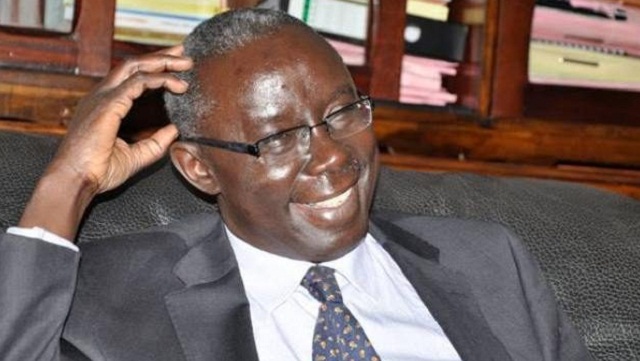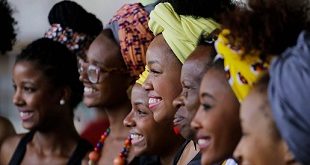
By Bob Kasango
We should never let our ideological differences and inclinations come in the way of our professional disagreements
It’s not the rule of law, it’s the rule of lawyers: That’s the central message conveyed by the Uganda Law Society’s suspension of the Attorney General’s membership and the award to him of a “Certificate of Incompetence”!
It is not for the first and I imagine the last, that my professional colleagues are doing this. The immediate previous Attorney General – Prof. Dr. Hon. Khiddu Makubuya SC., the Inspector General of Police Gen. Kale Kayihura, the Rt. Hon. Prime Minister Amama Mbabazi and Gen.
Tinyefuza (as he then was) now Ssejusa have also suffered the same fate in the recent past. Prof. Makubuya’s suspension was lifted but the rest remain in force!
The action of the lawyers reminds me of the lessons one learns from reading two books, the first – Charles Duhigg’s – The Power of Habit: Why We Do What We Do in Life and Business. Duhigg’s essential argument is that there’s a cue, which is like a trigger for an automatic behavior to start, and then a routine and then a routine, which is the behavior itself, and then finally a reward.
And the reward is how your brain learns to remember this pattern for the future. The second – Dan Ariely’s –Predictably Irrational: The Hidden Forces That Shape Our Decisions. The book is about the subconscious factors that affect how we think and act without conscious realistion. Why do we make the choices that we do? What is our motivation? Why are seemingly irrational choices made over and over?
Prof. Ariely argues that our first experience becomes our anchor point that future instances are pegged to and rebound towards like a rubber band. He says anchor points are hard to change, but new anchor points can be created wholecloth by giving people a new experience.
One hopes that, as lawyers, we are not triggering a behaviour that will become a routine and an anchor point that is rebounding like a rubber band!
Lawyers are fond of invoking the rule of law. Yet that golden standard seems now to stand on the conceit, honored more in the breach than in the observance, that “we are a nation of laws, not of men.”
It holds that there is an objective corpus of law — of the community’s reasoned consensus, shorn of passion, fear, or favour — under which we have agreed to be governed and to which those chosen to represent us owe their fidelity.
It’s a nice ideal. Increasingly, though, our real governing standard is the one made infamous by the legendary American litigator Roy Cohn: “Don’t tell me what the law is. Tell me who the judge is.”
I have followed with bated breath as my colleagues berated the learned attorney general over his opinions to the President.
The altercation has largely been verbal and only the Attorney General’s opinion is known to the public. His accusers have not had the courtesy to make known publicly in writing their contrary views/opinions on the subjects over which they disagree with the Hon. Peter Nyombi.

Lawyers have taken sides in what has become a highly charged political and even partisan controversy. The ideological character of the debate also made involvement in it unattractive to the neutral.
From the earliest days of this nation, one of the central responsibilities of the attorney general has been to advise officers of the executive branch on questions of law. In creating the office, the framers of our Constitutions (past and present) identified litigation on behalf of the government and the provision of legal advice as the duties of the attorney general.
By rendering legal advice to the President and other executive officers, the attorney general plays an important role in the maintenance of the rule of law. This role is nowhere more significant than when the attorney general provides advice on the meaning and application of the Constitution.
The attorney general is the only lawyer in the land upon whom the Constitution bestows the authority to render binding legal advice to the government and indeed the President.
And so when we disagree with the positions taken by the attorney general, we ought to do so in a principled and respectful manner. We should never let our ideological differences and inclinations come in the way of our professional disagreements and when we disagree, it serves us and the public best when we publish our view points for the neutral observers and the non-lawyers to make informed judgments.
I quite strongly disagree with the opinions the Hon. Peter Nyombi has rendered to the executive on several issues, but my departure from his opinions, doesn’t make me right and him wrong. It only means that we have differing viewpoints.
Lawyers know too well that there are as many opinions on a point of law as there are lawyers and until a competent court of law pronounces itself as to which lawyer is right, none of us should sit in judgment of another as “incompetent”!
No lawyer could confidently assert that Hon. Nyombi’s opinions were deliberately “false” or given in bad faith. Only then could one accuse the learned Attorney General of professional misconduct.
To punish a lawyer simply on the mere harebrained abstraction that their opinion is erroneous would be a dangerous precedent to set. By extension, every lawyer that loses a case in court would be subject to punishment for “incompetence” and a candidate for a “Certificate of Incompetence”.
It would also mean that each time a higher court departs from the judgment of a court below; the judges that passed the judgment in the court below would be sanctioned for “incompetence” and awarded “Certificates of Incompetence” without delay! This is precisely what the actions of my learned colleagues portend.
Our ideal of judging was perhaps best explained by US Chief Justice John Roberts during his 2005 confirmation hearings. The judge is like an umpire, Roberts mused. The umpire calls balls and strikes; he doesn’t design or alter the rules of the game.
That’s how it’s supposed to work. The judge’s courtroom is the level playing field where even the visiting team can win if the law — the objective law — is on its side. Sure, the crowd and the local paper will root, root, root for the home team. The rules, however, don’t have a rooting interest. Justice is blind. The umpire is there to see that justice is done — not manufactured.
The Law Society clearly doesn’t view the world that way. They want the umpire to pick winners and losers, not simply to preside over a fair fight — “fair,” in this context, meaning a fight under rules agreed upon before the game gets started.
Therein lies the problem. In point of fact, the rule of law does state important things we must do in such times. Things like providing for the common defense — things we must do for everyone equally, just as the “negative liberties” are things we must not do to anyone equally, like suppress free speech.
But the Law Society did not see things that way. We cannot punish one without taking from the others. And each time we take away from one in the manner we have, we set a bad precedent because it will be the standard upon which we all will be judged.
That is not the rule of law; it is the rule of lawyers. It is the claim that something extraneous to the law, to the antecedent rules we all agree to live by, should be dispositive in a given case. And that something is the lawyer-turned-judge’s subjective sense of right and wrong, and it is nothing more than the lawyer unconstrained by the law.
And lawyers unconstrained by the law are the umpire unconstrained by the rules — which is to say, they are no umpire at all. They are fans, part of the crowd, subject to all the crowd’s biases, boosterism, and irrationality. That these traits come wrapped in a law degree does not make them more attractive. When they come wearing a robe, they can be monstrous.
A truly wise lawyer would know the rule of law doesn’t change depending on whether it’s being read for Nyombi or any other lawyer — but the rule of lawyers does.
The duty of the Law Society must always be to act to protect the public interest and not the interest of the lawyers it regulates.
*******
Kasango is a Kampala based lawyer
bkasango@independent.co.ug
 The Independent Uganda: You get the Truth we Pay the Price
The Independent Uganda: You get the Truth we Pay the Price




)
……………………….Final Warning…………………………….
>Pentagon report predicts unprecedented disasters…._Google 2010 2020….
• ye shall know the truth, and the truth shall make you free. – John 8:32
‘The world is unhappy. And she’s unhappy not to know where she’s going. And also because he guesses that if he did, he would only realize that he was on the way to catastrophe. ”
• ¬_V G d’Destaing quoted in The World Challenge of JJSS-L’express
Christians who believe in the prophetic word realize that we are living in the last stages of the end times. However, a large number of non-Christians are also expressing their growing concern about the formation of a globalized world. Some begin to realize the danger of having a single ruler, who could lead us to the greatest dictatorship in history. But world leaders are working hard to unite the planet. The view accepted by most is that at the moment we are all united, wars will end, prosperity will be a global reality, crime will be eliminated, poverty will cease to exist and the result will be a peaceful world society, which will live in harmony with the nature.
However, this theory clearly contradicts the Holy Scriptures, because they affirm: at the moment and q man to imagine that he achieved global peace and prosperity, will begin the most horrendous days that the world has ever experienced. In 1 Thessalonians 5: 3, we read, “When they say, Peace and safety, behold, sudden destruction shall come upon them, as the travailing birth comes to her that she is about to give birth; and by no means shall they escape. ”
There is only one way to escape the coming judgment. It is not an escape into a new philosophy, or a different kind of government, but just to follow the One who said, ” I am the door. If anyone enters through me, he will be saved. ‘”(John 10: 9). How can you enter? By faith. Believe that Jesus, the Son of God, paid for his sins with his own blood on the cross of Calvary. John 3:36 assures us: “He that believeth on the Son hath everlasting life; but whoever rejoiceth against the Son shall not see life, but the wrath of God abideth on him. ‘
_The Age of the Digital God – Arno Froese – Calling.com;
>The Agony of the United States of America >Google
> ye shall know the truth, and the truth shall make you free. – John 8:32
Read the entire Holy Bible. Find out and … make up your mind. Who warns friend is.
l